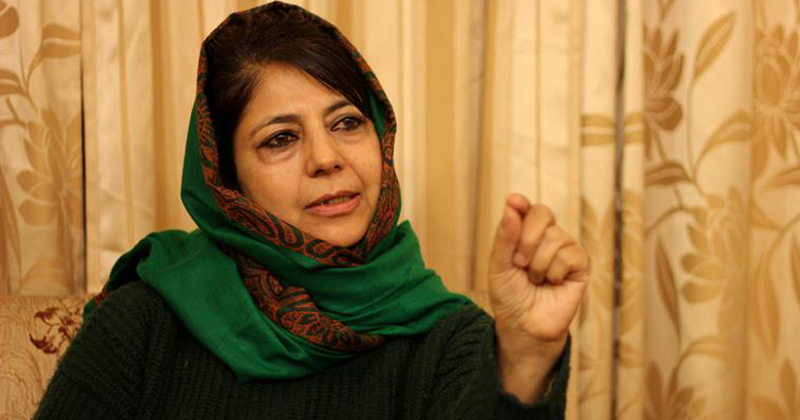The arrest of Chinmoy Krishna Das, a senior ISKCON leader in Bangladesh, underscores the deteriorating conditions for Hindu minorities. His detention, purportedly for “disrespecting” the Bangladeshi flag, signals a troubling pattern of targeted harassment, particularly in the aftermath of Sheikh Hasina’s ousting. Minority communities are now increasingly vulnerable, facing rising violence and systemic discrimination, heightening fears of further persecution. Against this grim backdrop, the People’s Democratic Party (PDP) chief Mehbooba Mufti’s recent remarks comparing the plight of Bangladeshi Hindus with that of Indian Muslims are both unfounded and misleading. Such parallels distort reality and downplay the severity of Hindu persecution in Bangladesh. Mufti’s assertion that Indian Muslims face similar “unprecedented threats” due to disputes over historical religious sites like Gyanvapi is a gross oversimplification. These legal battles are adjudicated within Constitutional frameworks, unlike the extrajudicial violence in Bangladesh. Further complicating the narrative is Mufti’s suggestion that the turmoil in Bangladesh mirrors India’s communal challenges. Such rhetoric is irresponsible, especially given the context of Sheikh Hasina’s forced ouster amid threats from radicalized mobs. Her subsequent escape to India underscores the fragility of minority rights in Bangladesh, where Hindus have dwindled from 20% to less than 9% over decades due to systemic persecution.

Equating these distinct realities not only trivializes the hardships faced by Bangladeshi Hindus but also stokes unfounded fears among Indian Muslims. India, despite its challenges, remains a pluralistic democracy that guarantees legal recourse and constitutional protections for all citizens. Mufti’s statements, therefore, fuel a divisive narrative that fosters mistrust and detracts from meaningful discourse India, under Prime Minister Modi’s leadership, must continue its commitment to safeguarding minority rights while adopting a firm stance on external threats. The government should intensify diplomatic efforts to hold Bangladesh accountable, urging the caretaker regime under Muhammad Yunus to protect minority rights. Failure to do so may necessitate stronger measures, including economic sanctions, to compel action. Domestically, India should address divisive rhetoric from opposition leaders. Public figures like Mehbooba Mufti must exercise restraint and avoid spreading false equivalences that undermine national interests. Legal measures against those engaging in acts of sedition or treachery should be pursued to safeguard India’s sovereignty. India’s geopolitical challenges, akin to Israel’s security concerns, require a robust, proactive strategy. Like Israel’s doctrine of pre-emption, India must be prepared to act decisively against hostile neighbours controlled by radical elements. A clear, assertive policy will not only protect national interests but also ensure regional stability. In that context, while political disagreements are inevitable, leaders must prioritize facts, accountability, and constructive dialogue. Only through clarity and responsible leadership can genuine progress be achieved, both within the nation and in fostering regional peace.






